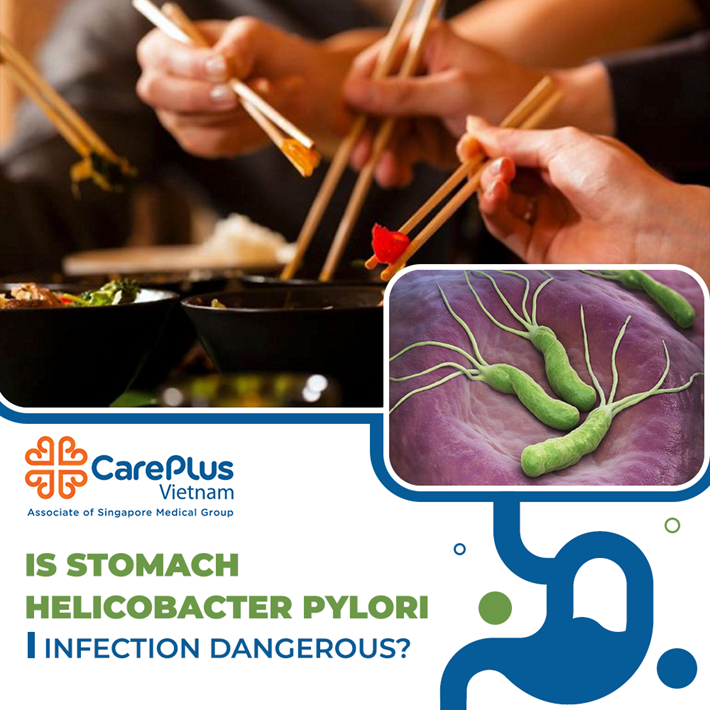Is HIV infection dangerous?
According to statistics, up to 70% of Vietnamese people are infected with HP. Helicobacter pylori is one of the main causes of gastric and duodenal ulcers, especially stomach cancer.

5/17/2022 10:42:00 AM
Helicobacter pylori invades the stomach and causes chronic gastritis, a long-lasting gastritis. Most individuals infected with H. pylori never experience clinical symptoms, despite having chronic gastritis. Among those colonized by H. pylori eventually develop gastric and duodenal ulcers and stomach pain. H. pylori infection is also associated with a 1-2% risk of gastric cancer and a less than 1% risk of gastric MALT lymphoma.
Is the HP virus dangerous?
According to statistics, in the world today, about 50% of the population is infected with HP However, the incidence of the disease will depend on many different factors such as: age, living habits, quality of life, geographical area.
Young children are at high risk of being infected with HP bacteria due to their habit of eating, kissing, or offering food to children. Although the infection rate is quite high, the disease symptoms are not clear, do not cause any complications on the gastrointestinal tract, so it is often difficult to recognize.
The dangerous complications of HP infection:
Helicobacter pylori causes many diseases such as acute gastritis, chronic gastritis, peptic ulcer, gastric cancer. The following complications will help readers answer the question of whether HP bacteria are dangerous:
- 90-95% of patients with duodenal ulcer are infected with HP
- More than 70% of gastric ulcer patients infected with HP
- More than 50% of people with non-ulcer dyspepsia are infected with HP
Approximately 90% of gastric cancers are associated with HP.
Helicobacter pylori is one of the main causes of stomach cancer. However, in addition to Helicobacter pylori, there are a number of other factors such as genetic resources of the infected person, environmental factors, and interactions between Hp bacteria and infected people. In Vietnam, more than 70% of stomach cancer cases are detected at a late stage. Detecting Hp infection by breath test and early gastric cancer screening by endoscopy is a must to contribute to early diagnosis, early treatment and return to normal life for patients.
Although the rate of people infected with HP bacteria progressing to cancer is not too high, each person should have proactive ways to prevent and treat HP bacteria. Especially for those who have a history of digestive diseases or have family members who have been infected with HP bacteria. If you have unusual symptoms, you should be examined and consulted with a specialist.